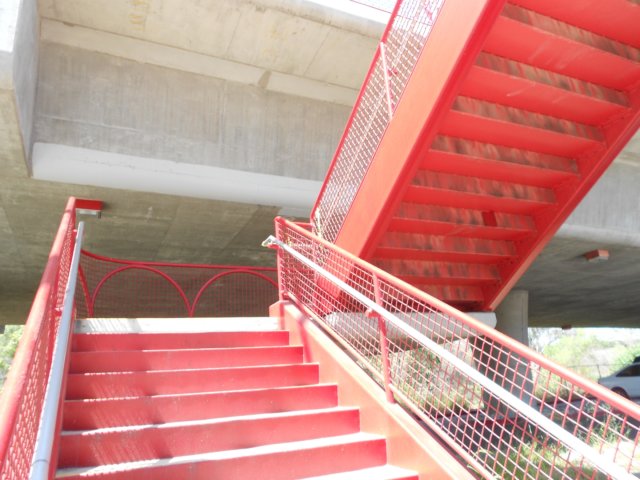A group of business and civic leaders recently “stepped up” to offer a series of proposals to lead the state out of its current budget quagmire. Organized as Step Up Oklahoma, this group’s suggestions for improving the situation include a variety of tax increases and governmental reforms.
Notable tax increases include:
- an increase on the state’s cigarette and fuel taxes;
- an increase of the state’s gross production tax on oil and gas wells;
- and “simplification” of the tax code.
(That last point, according to the plan’s authors, will increase state income taxes on households earning over $12,000 per year.)
Government reforms include:
- lowering the super-majority threshold currently required to raise taxes;
- the creation of an “independent” budget office;
- increasing term limits from 12 years to 16 years;
- and having the governor and lieutenant governor run as a ticket.
Regardless of what one thinks of the individual recommendations, it is clear that some sort of compromise will be needed to address the state’s current budget shortfall of $215 million and a projected shortfall for the next fiscal year that could exceed $600 million. A combination of revenue increases and steps to greater efficiency will have to be the way out of our current fiasco, but long-term growth will require something more.
Long-term growth requires key ingredient
In the long run, what Oklahoma needs far more than tax increases or targeted budget reductions (usually advertised as “greater efficiency”) is serious and sustained economic growth. Quite frankly, Oklahoma needs more people earning higher incomes. This not only benefits those households earning the higher wages, it benefits the state by broadening the tax base while maintaining a relatively low level of taxation and appropriately funding core services.
Achieving such growth is not a short-term solution involving government officials recruiting large employers to the state with a variety of tax credit schemes. Such events make great headlines for elected officials but are rarely the source of long-term economic growth. Rather, innovation leads to long-term (and increasing) levels of economic growth.
Reducing the barriers to innovation
In their book, Better Capitalism, economists Robert Litan and Carl Schramm offer some specific recommendations for achieving higher rates of innovation and economic growth. Three recommendations stand out, especially for Oklahoma:
- reducing the barriers to entrepreneurship and innovation;
- becoming more welcoming for immigrants and others perceived as “outsiders”;
- and incorporating entrepreneurial skills into all levels of education.
Litan and Schramm explain that, to raise standards of living, innovators and entrepreneurs must be freed to create. This means creating policies that encourage and reward such innovation.
Occupational licensing reform represents one of the easiest policies to enact at the state level, and Oklahoma Labor Commissioner Melissa Houston recently spearheaded a task force that issued a thorough report and set of recommendations.
It is becoming recognized across the country that many, if not most, occupational licensing requirements fail to protect either the health or safety of consumers. Instead, such requirements insulate already established businesses and service providers from competition. This reform is especially important to low- and middle-income households who can improve their lives through various forms of entrepreneurship.
In addition, Litan and Schramm argue that universities need to rethink how they treat faculty members and researchers who create new innovations, especially when such advancements can benefit the broader public. Giving those researchers greater ownership of their creations and greater flexibility in bringing them to market will encourage more innovation.
Developing an ‘eco-system’
Another way the authors suggest barriers to entrepreneurship can be removed is the creation of entrepreneurial support systems (“eco-systems”). Similar to the Oklahoma City Thunder’s announcement of its Thunder Launchpad initiative, the development of these support systems will enable budding innovators to connect to mentors, legal and financial experts, and sources of funding for their projects. Developing entrepreneurial eco-systems will improve the odds that an innovator’s efforts will ultimately succeed in the marketplace.
‘Outsiders’ largely compose the creative class
New people — and the ideas and innovations they often bring with them — are equally important to achieving increased economic growth. Unfortunately, Oklahoma has engaged in a spat of “anti-other” policies and sentiments during the past decade. Legislation opposed to Muslims, gays and “illegal” immigrants has all been proposed or passed in the previous 10 years, with the clear message that “if you’re not like us, you’re not welcome.”
Meanwhile, Litan and Schramm correctly point out that entrepreneurship is higher among immigrants than native-born Americans. In addition, the creative class, as economist Richard Florida has termed innovators and entrepreneurs, tends to favor environments that welcome individuals of various backgrounds, experiences and lifestyles.
Entrepreneurial skills as educational mandates
Finally, Litan and Schramm argue that education at all levels needs to incorporate entrepreneurial skills into the curriculum. Education expert Tony Wagner agrees. According to Wagner, schools should emphasize skills such as critical thinking, adaptability, entrepreneurship and collaboration. We can’t expect future generations of innovators if they aren’t learning the skills needed to succeed. As Litan and Schramm state, “All of us, and especially our children, will need entrepreneurial skills our entire working lives.”
Striving toward a permanent solution
The members of Step Up Oklahoma should be commended for demonstrating leadership in attempting to resolve the current state budget crisis, however, a permanent solution to this problem will take more than adjustments to taxes and additional budget cuts. A permanent solution will require a commitment to make Oklahoma a real center of entrepreneurship and innovation. In turn, this commitment will demand time, hard work and a willingness to change how we do certain things.























